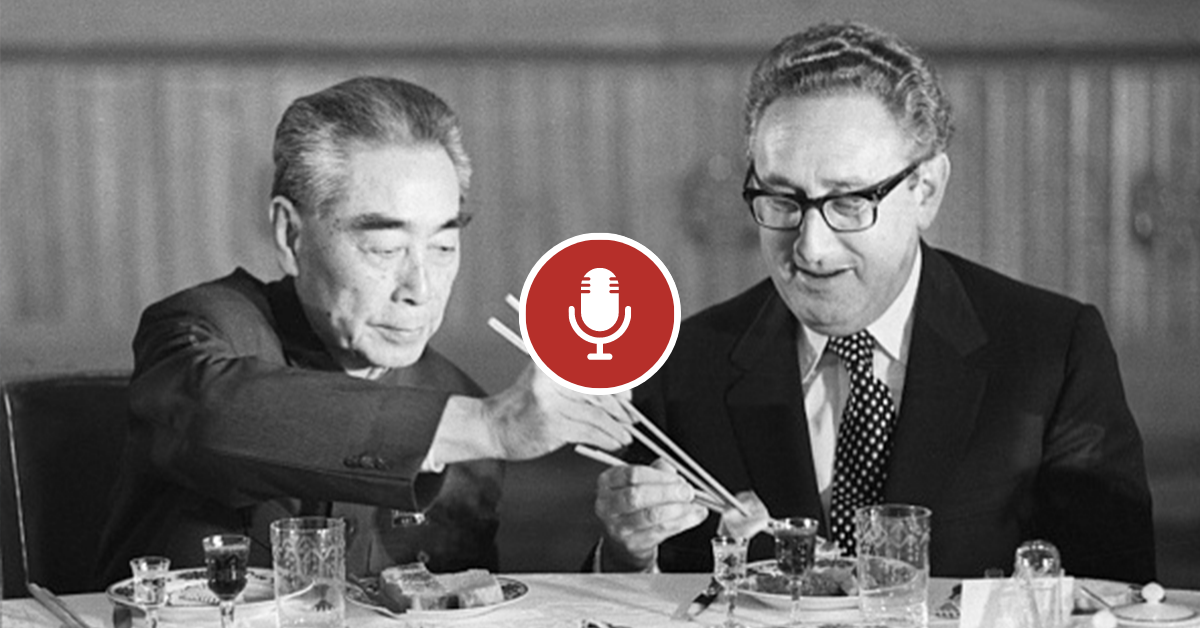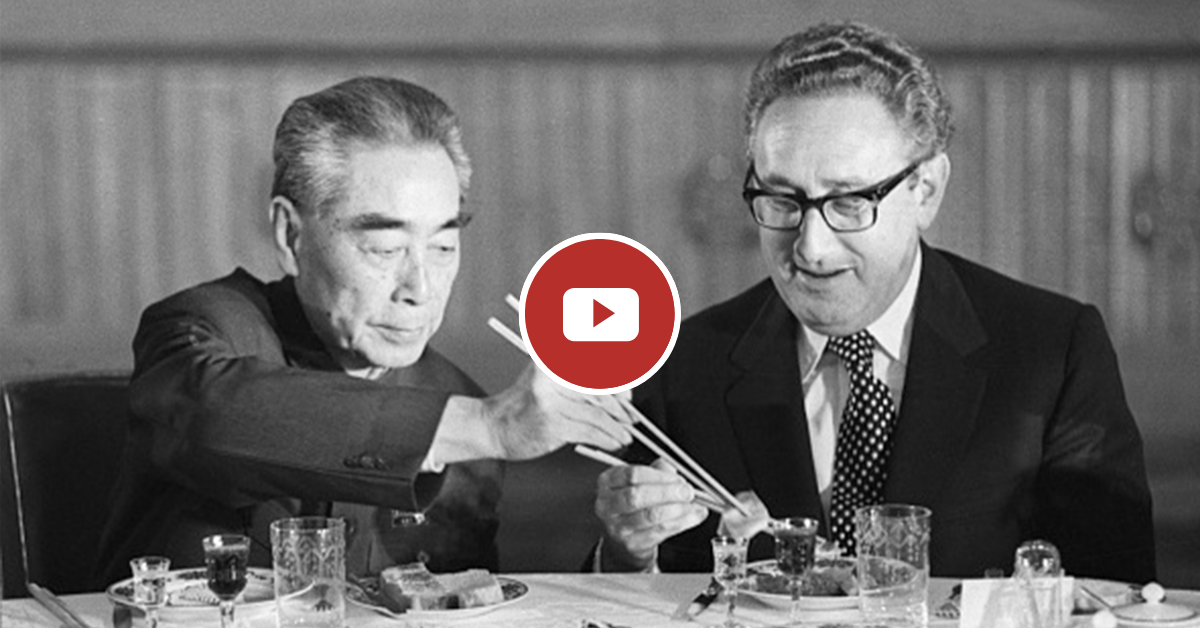Thursday, July 8, 2021 | 9:00 PM EDT - 10:45 PM EDT
Zoom | Webinar
On July 8, 2021, The Chinese People’s Institute of Foreign Affairs (CPIFA), with assistance from the National Committee on U.S.-China Relations, organized a multi-part event to commemorate the 50th anniversary of Dr. Henry Kissinger’s secret trip to China. The event took place at Beijing’s Diaoyutai State Guest House and featured live remarks by Dr. Kissinger and Vice President Wang Qishan.
A variety of components comprised the commemorative event:
Keynote | Dr. Kissinger and Vice President Wang Qishan reflect on the significance of the July 1971 visit
Panel 1 | Eye Witnesses to History: Participants from the 1971 Kissinger secret trip and 1972 Nixon visit discuss the visit itself and its historical importance
- Chinese Panelists: Ambassador Lian Zhengbao and Ms. Nancy Tang
- American Panelists: Ambassadors Winston Lord and Chas Freeman
- Moderator: Ms. Jan Berris
Panel 2 | Beneficiaries of the Visit: Representatives from the business, education, and entertainment communities comment on the modern legacy of Kissinger’s visit
- American Panelists: Dr. Brent Haas (Yenching Academy, Peking University), Mr. Ben Harburg (MSACapital), and Ms. Yvonne Pei (Walt Disney Company, Greater China)
- Chinese Panelists: Mr. Huang Xianhui (Fosun Group), Dr. Robert Hong Xiao (Perfect World Co Ltd), and Mr. Xie Yuan (Chinese People’s Association for Friendship with Foreign Countries)
- Moderator: Mr. Wang Guan (CGTN)
Performance | The Philadelphia Orchestra and the Chinese National Symphony Orchestra: Quartets from the orchestras involved in the earliest music exchange between the United States and People’s Republic of China perform short selections
Below are the key takeaways of the event:
- Vice President Wang Qishan: Dr. Kissinger’s secret visit 50 years ago initiated a new chapter in U.S.- China bilateral relations and global policy that has been tremendously beneficial for the world in areas such as climate, law enforcement, people-to-people relations, and trade. The sound and steady development of U.S.-China relations is of the utmost importance to global stability, and the Three Joint Communiqués provide a fundamental guide to managing bilateral relations.
- Secretary Henry Kissinger: It remains important for our two countries, and for the world, to understand that the premise which led to the secret visit in 1971 is still valid today. In this era, U.S.- China relations are more complex and we have not yet fully developed the mechanisms for converging our opposing historical and political views. However, conflict between the United States and China would divide the whole world and have severe implications for global development.
- Ambassador Winston Lord: Dr. Kissinger’s secret trip was a classic win-win situation: the United States was able to balance the security threat from the Soviet Union, and China was able to break out of the international isolation it experienced during the Cultural Revolution.
- Ms. Nancy Tang (Tang Wensheng): The primary reason why U.S.-China relations are at a low point today is because we lost respect for each other’s differences. Henry Kissinger and Zhou Enlai were able to sit down at the same table 50 years ago because they understood that the United States could not change China and vice versa.
- Ambassador Chas Freeman: Engagement between China and the United States has not been a failure and in fact has been tremendously beneficial for both countries. China is not a democracy today not because of the United States, but because of its specific socio-economic and political history. Dr. Kissinger took exactly the right approach by cooperating with China when possible despite our significant differences.
- Ambassador Lian Zhengbao: During Dr. Kissinger’s visit, the United States and China were able to seek common ground despite significant disagreements on a variety of issues. From this, we know that even given the current degradation in our relations, both countries have the sincerity to improve engagement and are capable of opening a new chapter.

